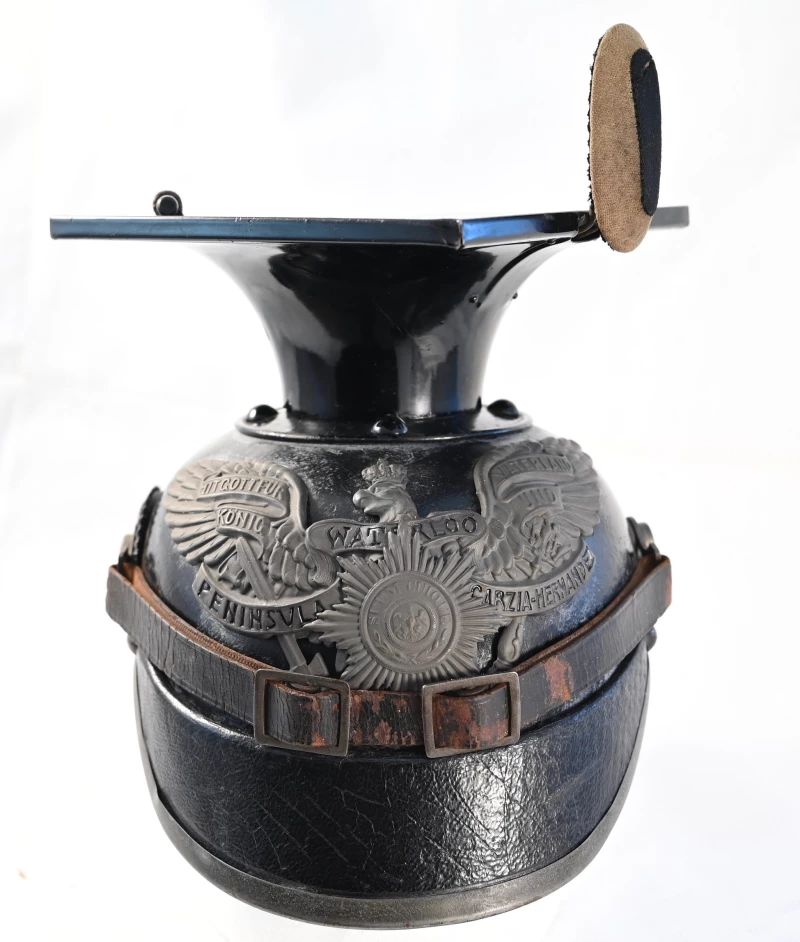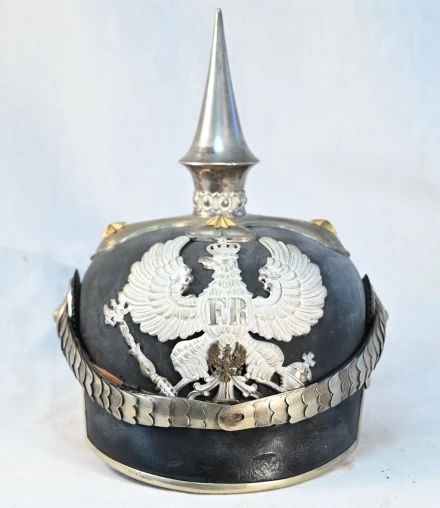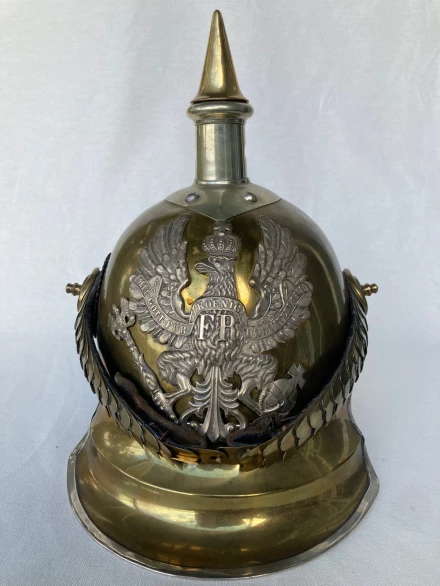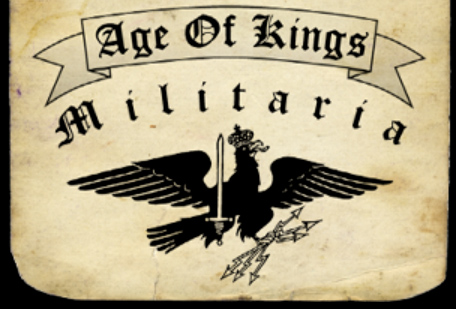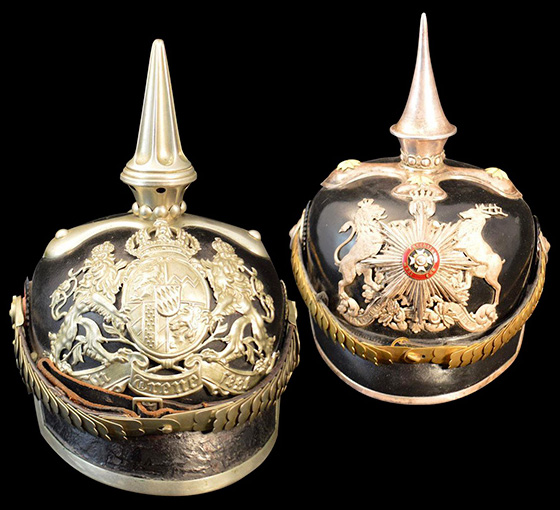The bannered Hannovarians
The importance of Hanover to Imperial Germany
*Authors note: You may see 2 spellings of Hannover (German) and Hanover (English). Please understand the usage of both in this article.
The city and region of Hannover became powerful and wealthy in the Middle Ages due to the important of trade within the Hanseatic League. Its royal family, descendant from the Dukes of Brunswick intermarried within the noble families of Europe. With the death of the childless Queen Anne of Great Britian in 1714, a search went out for a new King. As the senior protestant descendant of English King James VI and I (ruled 1603-1625) the 18 year old George Louis-the Grand Elector of Hannover was chosen to be the new King of England and Great Britian. This marked the beginning of Hanoverian Era of the British Empire. Since King George the Ist resided in London, a viceroy from a British royal family, handled the administration of the Grand Electorate of Hanover. King George personally maintained control of the Hanoverian Army and foreign policy.
The rise of Napoleon the Ist completely changed the rulers of Europe. In 1803, the French Army invaded the German states and overran the Hanoverian Army. As the Grand Duchy of Hanover was ruled by his arch enemy, King George III, Napoleon dissolved and annexed the Electorate .
Much of the Hanoverian Army escaped to England and served under their souverain in the Kings German Legion (Deutsche Legion des Königs, Englisch–Deutsche Legion, Deutsche Legion). The Legion was formed within months of the dissolution of the Electorate of Hanover in 1803. The Legion achieved the distinction of being the only German force to fight without interruption against the French during the Napoleonic Wars. It remained a part of the British Army during the Napoleonic Wars (1804–15). it played a vital role in several campaigns, most notably the Walcheren Campaign, the Peninsular War, and the Waterloo Campaign (1815). The legion was formally disbanded in 1816. Several of the units were reincorporated into the army of Hanover.
After the defeat of Napoleon, an International Congress was formed by the victors to re-establish the territory and governance of central Europe. The Congress of Vienna was held in October 1814. It reformed Hannover as a new Kingdom of Hanover (German: Königreich Hannover). George III was restored to all his Hanoverian territories.
The German states became powerful during the Industrial Revolution of the early 1800’s. The formation of the North German Customs League increased German’s power and influence. The Kingdom of Prussia and The Austrian Empire jockeyed for control of the German speaking territories. Prussia, under the aggressive leadership of Count Otto von Bismarck as its Prime Minister tried to exclude Austria from central Europe. Austrian influence was strong. The Kingdoms of Hanover, Bavaria, Saxony and Wuerttemberg as well as the Grand Duchy of Hessen pledging their support to the Austrian cause as leader of the Customs League. In 1864, Bismarck engineered a War with the Kingdom of Denmark over the Grand Duchies of Schleswig and Holstein. In this war, Prussia and Austria acted together to vanquish Denmark. Bismarck realized how powerful the Prussian Army was, so he decided to force Austria out of Central Germany. In early 1866 a political crisis with Austria developed over recently acquired Schleswig-Holstein. Prussia declared War on Austria on June 14, 1866. This war became known as the “Bruderkrieg” or Brothers War. The German Rulers of the small states had to pick sides. The kingdoms of Hanover, Bavaria, Saxony and Wuerttemberg along with Grand Duchy Hessen sided with Austria. The powerful Prussian Army crushed Austria and her allies in only 1 month and 8 days. The immediate result of the war was the exclusion of Austrian influence in northern Germany. As punishment to Austria’s allies, Prussia annexed Schleswig-Holstein, Hessen-Kassel, Nassau, Frankfurt, parts of Hesse-Darmstadt and the entire Kingdom of Hannover. The Kingdom of Hannover was reduced to a Grand Duchy under the control of Prussia. This eliminated England from power within Germany. Bismarck had a greater goal than just to conquer Austria. He wanted to establish a new German Empire with Prussia at it head. He had one more war to plan. In 1867, Bismarck forced the defeated German States to join a Military Alliance with Prussian at its head. Bismarck wanted to all the German States to work together. At that time Louis Napoleon (Emperor Napoleon III) was actively creating a new French Empire. The universal fear of a French invasion allowed Bismarck to form this military union
The Franco-Prussian War of 1870-71was the event that fused the new Germany together. The enemies within the German States fought together with Prussia to defeat of Napoleon III. This event was the cauldron that formed the steel of the new German Empire. Heady with victory, the German Kings and Princes elected King Wilhelm I as the new Kaiser (emperor) at the Palace of Versailles in 1871. After Unification all the armies of the individual states melded molded into The Imperial German Army.
After many years, Kaiser Wilhelm II (the grandson of Queen Victoria of Great Britian) wanted to heal past wounds and celebrate the past glories of his army. The Kaiser wanted the famous Regiments in the Imperial German Army to be able to celebrate their history. He also wished to improve his relationship with his grandmother, Queen Victoria of Great Britain. She was technically still the ruler of the Grand Duchy of Hanover. Kaiser Wilhelm decided to honor the service of the Kings German Legion who served both England and Germany against Napoleon. By order of the Kaiser, on January 24, 1899, the modern military units related to the Kings German Legion were allowed to wear the names of their Battles as extra banners on their helmet plates. The honors were bestowed to the following Imperial German units.
The Banner PENINSULA and WATERLOO
. Fusilier Regt. General Field Marshall Albrecht of Prussia (Hanover)
. Hanover Pioneer Battalion 10 (Minden)
The banner WATERLOO
. 1st Hanoverian Regiment 74 (Hanover)
. 2nd Hanoverian Regiment 77 (Celle)
. Inf. Regt.Duke Friedrich Wilhelm of Brunswick Regt. 77 (Osnabruck)
. 4th Hanoverian Regiment 164 (Hameln)
. 5th Hanoverian Regiment 165 (Quedlingburg)
. 2nd Hanoverian Dragoon Regt (Lüneburg)
The Banner WATERLOO, PENINSULA, VENTA-DEL POZO
. Jaeger Battalion 10 (Goslar)
The Banner Waterloo, Peninsula, Gohrde
. Dragoon Regt. King Carl of Romania-1st. Hanover Regt 9 (Metz)
. Lower Saxony Field Art. Regt. 46 1,4,5,&6Bat.(Wolfenbuttel-Celle)
The Banner Peninsula, Waterloo, El-Bodon, Barossa
. Hussar Regt. Queen Wilhelmina of the Netherlands, Regt. 15 (Wandsbek)
The Banner Peninsula, Waterloo, Garza Hernandez
. 13th Uhlan - Kings Uhlan Regiment 1st Hannoverian
. 14th Uhlan - 2nd Hannoverian Uhlan Regt. (St. Avold – Morchingen)
The Banner Peninsula, Waterloo, Gohrde -Colberg 1807
. 1st Hanover Field Art. Regt- von Scharnhorst Regt. 10 (Hanover)
. Lower Saxony Field Art. Regt. 46 – 2nd Battery (Wolfenbuttel-Celle)
The Hannoverian units proudly wore the distinctive banners on their helmets.
See also
"Beamte” and Military Specialty Troops of the Imperial German Army - Part 1
Part 1 of more to come!
A study on the model 1843 - 6th Kurassier Pickelhaube
From noted collector and researcher Tony Schnurr
Huis Doorn
After the Ciney, Belgium Show, Remy and I had the opportunity to visit House Doorn in the Netherlands. This was Kaiser Wilhelm II home in exile until his death in 1941. Before we tell you about our visit we want to give you a little background on its importance.



